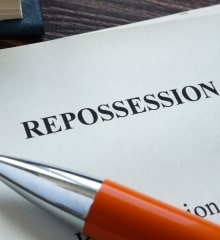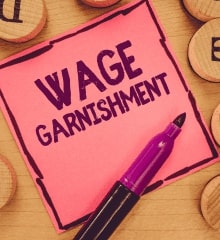What Happens When a Bankruptcy Case Is Dismissed in Texas?
Updated on 19 May 2025
When a bankruptcy is dismissed in Texas, the case is closed out without any of your debts being discharged. The dismissal process begins when the debtor, the trustee, or a creditor submits a motion to request a dismissal. However, the court is not required to grant this request.
The decision will depend on various factors, such as:
-
The type of bankruptcy filed
-
The reason the dismissal was requested
-
How far in the process the filing has progressed
-
How the dismissal would impact the creditors
What Does a Dismissed Bankruptcy Mean?
If your Texas bankruptcy case is dismissed, it will be closed before you obtain a discharge, meaning that you will remain responsible for all of your debts. It also means that you lose the protection of the automatic stay, which is a court order forbidding creditors from collecting on your debt while your bankruptcy is pending.
Cases can be dismissed for various reasons, ranging from fraud to a simple clerical mistake. Some of the most common reasons for dismissals in Texas include:
-
Failing to complete credit counseling
-
Failing to pay the filing fee or apply for a fee waiver
-
Filling out the wrong forms
-
Not including required supporting documents
-
Completing papers with fraudulent information
-
Making too much money to qualify for Chapter 7
-
Failing to attend the meeting of creditors
-
Failing to comply with your Chapter 13 repayment plan
What Is the Difference Between Discharged and Dismissed?
When you file for bankruptcy in Texas, you are probably hoping to have your debts discharged. If the court gives you a discharge order, your obligation to repay the debts included in the order is eliminated. On the other hand, a dismissal means that there was something wrong with your case, and the court threw it out before you receive a discharge.
Can a Dismissed Bankruptcy Be Removed From the Credit Report?
Dismissed bankruptcies will be reported on your credit when the court processes the dismissal and informs the reporting agencies. Even if your debts were not discharged, credit bureaus are required to report dismissals for up to 10 years, just as a discharged case would be listed.
However, if a filing was included on your report erroneously, you can file a dispute with the credit agencies to have it removed. If the Texas court that reported the filing cannot produce records that show you filed, you can request that it issue an order to have it removed from your credit report.
Avoid Dismissals with a Texas Attorney
Many bankruptcy dismissals occur when debtors try to file their cases on their own, without the help of an experienced Texas lawyer. When their cases are thrown out, they must incur the additional expense of filing again, often only to face another motion to dismiss. Because bankruptcies can be dismissed for minor errors, it best serves you to have a knowledgeable attorney handle the filing process on your behalf.
The skilled legal team at bankruptcy law firm DebtStoppers can help you eliminate your debt and ensure your case is filed right the first time.
Understanding the Consequences of a Bankruptcy Dismissal
When a bankruptcy case is dismissed in Texas, the debtor faces several consequences. As the automatic stay protection is no longer in effect, creditors can resume their collection efforts, which may include wage garnishment, bank account levies, and property liens. Furthermore, the debtor remains responsible for all their debts, making it difficult to achieve financial stability and regain control over their finances.
Recovering from a Bankruptcy Dismissal
Recovering from a dismissed bankruptcy can be challenging, but it is not impossible. If you believe that your case was dismissed due to an error or misunderstanding, you can consult with a bankruptcy attorney to determine the best course of action. In some cases, you may be able to refile your bankruptcy case, provided you meet the eligibility requirements and have corrected the issues that led to the initial dismissal.
Impact of a Bankruptcy Dismissal on Your Credit Score
A dismissed bankruptcy will have a negative impact on your credit score, as it remains on your credit report for up to 10 years. This can make it difficult for you to secure new lines of credit, such as loans or credit cards, during this period. It is essential to take steps to rebuild your credit after a bankruptcy dismissal, including paying your bills on time, reducing your debt-to-income ratio, and establishing a positive payment history.
Preventing Bankruptcy Dismissals in Texas
To prevent bankruptcy dismissals, it is crucial to work with an experienced bankruptcy attorney who can guide you through the process and ensure that your case is filed correctly. A skilled attorney can help you avoid common mistakes and pitfalls that can lead to case dismissal. They can also provide valuable advice on the most suitable type of bankruptcy for your situation and help you navigate the complex legal procedures involved in filing a bankruptcy case.
Conclusion
Bankruptcy dismissals or bankruptcy chapter 13 discharge can be a significant setback for those seeking relief from their debts. By working with a knowledgeable bankruptcy attorney, you can minimize the risk of dismissal and increase your chances of obtaining a successful discharge. If you're facing financial difficulties and considering bankruptcy, it's crucial to seek professional guidance and support to ensure the best possible outcome for your case.


